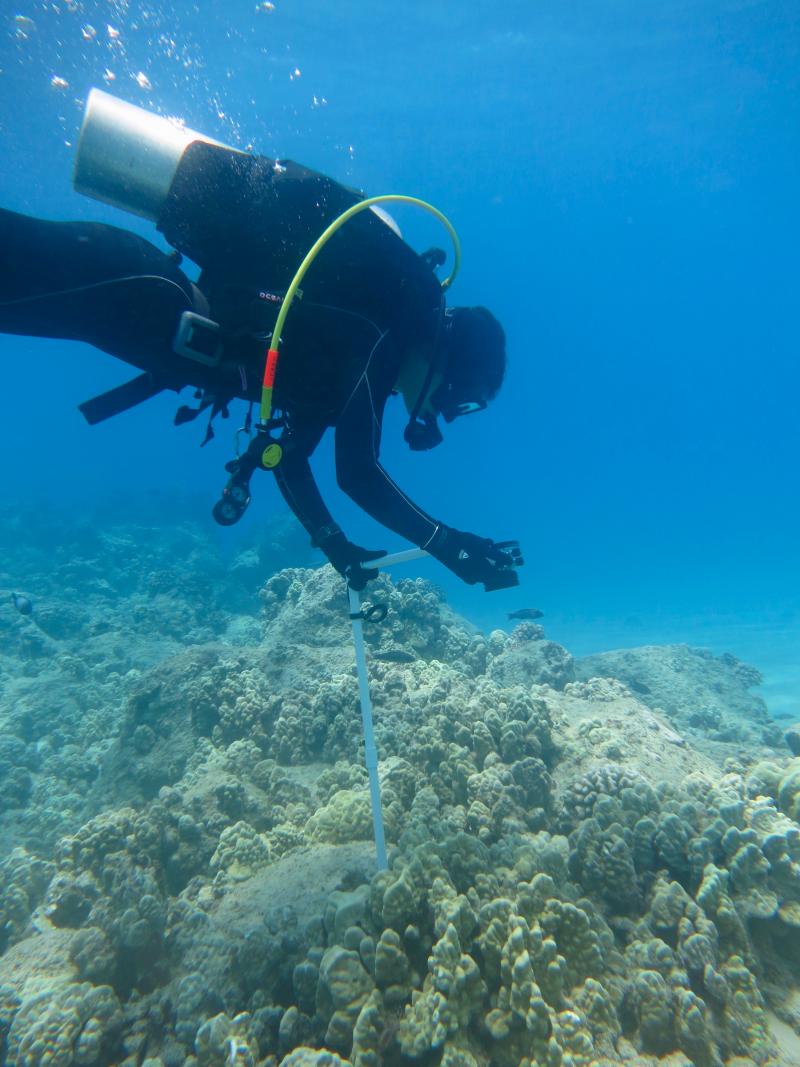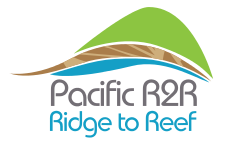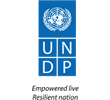
| Name | Jade Delevaux |
| Position | Science and National Project Leader |
| Organization | Pacific Community (SPC) |
| Town/Country | Honolulu, Hawaii |
| Contact email | [email protected] |
Tell us a little bit about yourself:
I was raised in Madagascar, where I witnessed unique island ecosystems and breathtaking land/seascapes as well as the local peoples’ strong sense of place, weaved in their ties to the land and ocean. But I also learned that with growing population and economic development comes deforestation, sediment runoff, and habitat loss, resulting in the loss of biodiversity and food sources once at the heart of our livelihoods and identity. The trend of uncontrolled erosion was so common that it was said ‘Madagascar bleeds into the ocean’ when viewed from the sky.
So from a young age, I wanted to play a role in conserving our island while supporting healthy people. To that end, I moved to Australia in 2002, where I studied seascape ecology to inform management and conservation at the University of Queensland. After graduating in 2006, I was hired to coordinate the monitoring of coral reefs in the north of New Caledonia threatened by sediment runoff from nearby mining activities. From there I joined a transdisciplinary Masters program in Marine Biodiversity and Conservation at Scripps Institution of Oceanography (University of California, San Diego). Upon graduation in 2011, the Pacific Islands called me to Hawai‘i, where I began working at the University of Hawai‘i to evaluate the effectiveness of the largest locally managed marine area of the Western Indian Ocean, located in southwest Madagascar.
I love to experience cultures, from tasting local foods to learning about traditional ecological knowledge, as well as exploring nature, through hiking in tropical forests to diving on biodiverse coral reefs.
Why did you become involved with Pacific Ridge to Reef?
Around the Pacific, there is growing concern over the effects of logging and agriculture expansion on coral reef fisheries due to increased sediment runoff, projected to be exacerbated under climate change impacts. Awareness of natural resource decline has contributed to a cultural renaissance around the Pacific, where local communities seek to revive customary ridge-to-reef resource management to foster social and ecological resilience in the face of climate change and declining resources, such as the ahupua‘a system in Hawai‘i and integrated land-sea management that includes the concept of vanua in Fiji.
What have been your key contributions?
During my PhD, I developed and implemented a spatially-explicit linked land-sea modeling framework to support watershed-scale management in Fiji and Hawai‘i. This tool was able to impact: (1) communities seeking to protect/restore their natural resources at the watershed-scale, (2) government agencies mandated to achieve conservation targets at the island- or archipelago-scales, and (3) scientists by identifying areas for future, localized research or filling gap data gaps.
Why is this important?
Integrated land-sea planning requires tools to understand the potential outcomes of management actions to inform spatial prioritization. Decision-support tools that simultaneously evaluate the impacts of terrestrial and marine drivers on coral reefs need to be at a fine spatial scale to be relevant for Pacific islands. Complex models can capture these processes, yet these approaches are data intensive and can be costly to implement. Many developing countries cannot afford the time and resources necessary to adopt these methods. Therefore, developing linked and-sea decision support tools that are flexible, simple to implement and interpret, and rely on existing and freely available data and software are needed.
What have been your key learnings?
Through my work in the Pacific, I have learned that a community-centric, place-based approach that links people and nature is necessary to meet conservation outcomes.
How will these experiences help you or provide opportunities for you/your community/your country in the future?
I hope that my years of experience in the Pacific region as well as my expertise integrating multiple disciplines can help people and nature to live in harmony.
What is a key message you would like to share on the importance of Ridge to Reef for people to know?
On islands, land and water, landscape and seascape, nature and culture are inseparable dualities. Islands highlight the richness of global landscape and seascape diversity and are ideal models for the application of natural and cultural approaches in conservation science. As an islander, I know that a culturally grounded approach, which recognizes connections between land and sea, is necessary to meet conservation outcomes.





